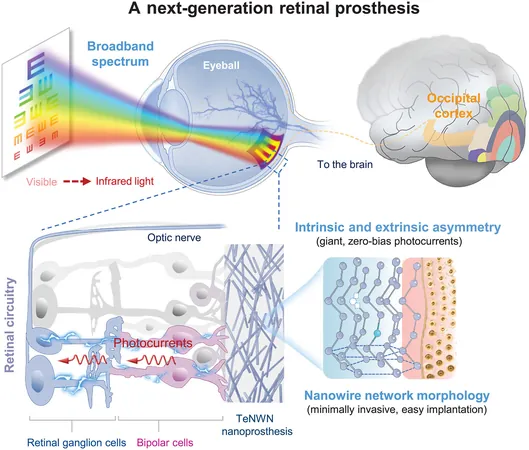
Is AI Undermining the Quality of Research? Experts Sound the Alarm!
2025-05-12
Author: Wei Ling
Artificial Intelligence: A Double-Edged Sword for Science
A shocking new study from the University of Surrey reveals that artificial intelligence tools might be jeopardizing the scientific integrity of new research. As these technologies gain prominence, concerns are mounting over a potential influx of "low-quality" studies masquerading as credible science.
The Infamous Surge in 'Science Fiction' Papers
Researchers analyzed a series of studies that linked health predictors to outcomes using the National Health and Nutrition Examination Survey (NHANES) dataset. What they discovered was startling: between 2014 and 2021, only four relevant studies were released each year. However, that number skyrocketed to 33 in 2022, 82 in 2023, and a staggering 190 in 2024!
Beware: Looks Can Be Deceiving
Dr. Matt Spick, a co-author of the study, warns that while AI offers immense potential to advance scientific knowledge, it also creates a "perfect storm" of challenges that could undermine the very foundations of rigorous research. Many recent papers may look scientifically sound but crumble under close examination—dubbed 'science fiction,' they exploit national health data without due diligence.
Superficial Analyses Raise Red Flags
The study highlights a troubling trend: many post-2021 papers rely on simplistic analyses, often zeroing in on isolated variables while neglecting the complex interrelations that exist in real-world health scenarios. Data dredging, or tweaking research questions post-results, has emerged as a common malpractice.
Call for Common-Sense Solutions
Lead author Tulsi Suchak emphasizes that the team is not against using AI but advocates for common-sense checks in research practices. Suggested reforms include transparency in data use, involving qualified reviewers in the peer review process, and flagging studies that focus on only a piece of a larger puzzle.
Practical Steps for a Healthier Research Ecosystem
To combat these issues, the researchers propose several actionable steps for journals, researchers, and data providers. These include utilizing comprehensive datasets, strengthening peer review with experts, and implementing a tracking system for open data usage.
The Future of Research Depends on Transparent Practices
Co-author Anietie E. Aliu stresses the urgent need for better regulations in the realm of scientific publishing amidst the AI era. Their straightforward recommendations could help filter out weak studies while ensuring the continued benefits of AI and open data.
Taking Action Now!
As the landscape of research continues to evolve, it’s crucial to act swiftly to safeguard trust and quality in scientific publication. The tools may be here to stay, but integrity in research must remain a top priority!




 Brasil (PT)
Brasil (PT)
 Canada (EN)
Canada (EN)
 Chile (ES)
Chile (ES)
 Česko (CS)
Česko (CS)
 대한민국 (KO)
대한민국 (KO)
 España (ES)
España (ES)
 France (FR)
France (FR)
 Hong Kong (EN)
Hong Kong (EN)
 Italia (IT)
Italia (IT)
 日本 (JA)
日本 (JA)
 Magyarország (HU)
Magyarország (HU)
 Norge (NO)
Norge (NO)
 Polska (PL)
Polska (PL)
 Schweiz (DE)
Schweiz (DE)
 Singapore (EN)
Singapore (EN)
 Sverige (SV)
Sverige (SV)
 Suomi (FI)
Suomi (FI)
 Türkiye (TR)
Türkiye (TR)
 الإمارات العربية المتحدة (AR)
الإمارات العربية المتحدة (AR)